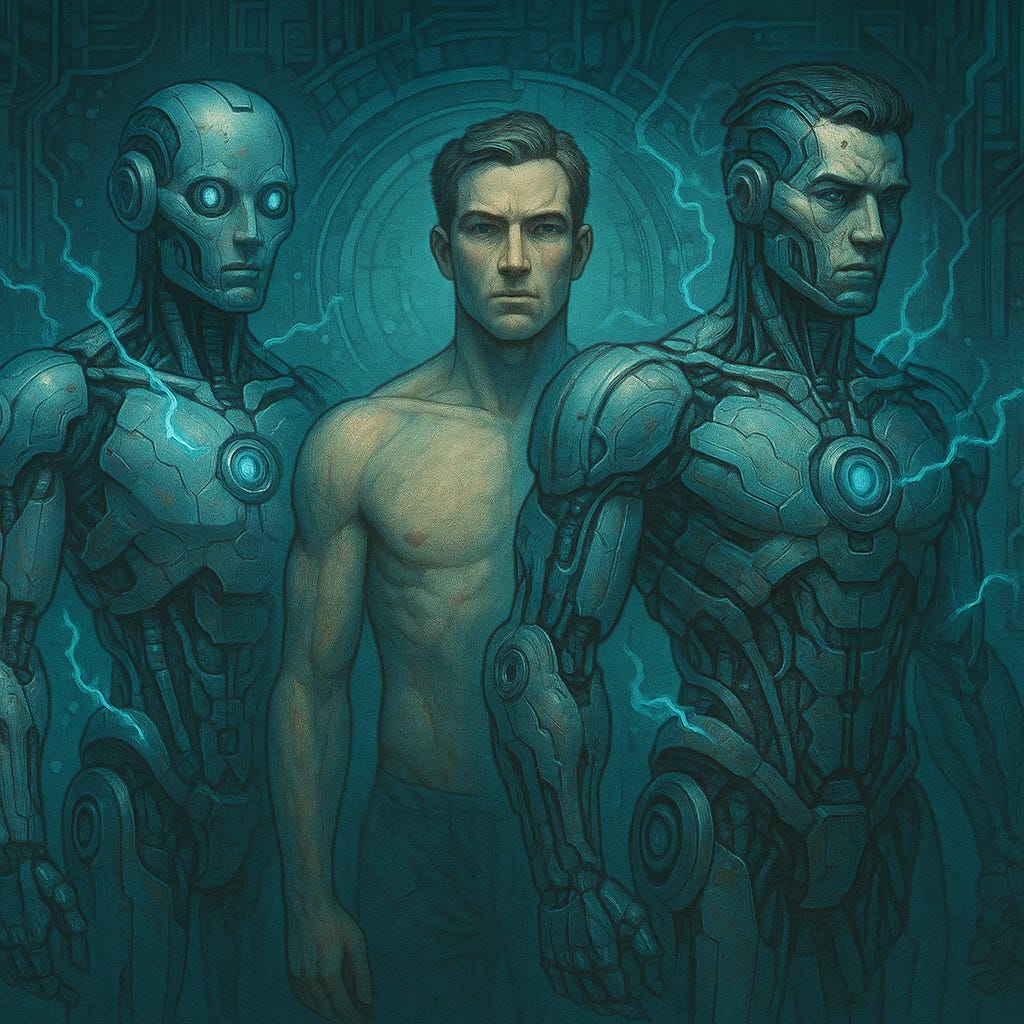The Uncanny Valley of Artificial People
Why acting already requires us to ignore the human in front of us
I grew up in the spiritual days of playing Pong, when an Atari was an incredible piece of machinery, and the Sega Genesis seemed to be the height of where computer graphics could go.
To escape from “reality” (there’s a reason I’m putting that in quotes and will get to it in a moment) was what all the kids, and a fair number of adults, were looking to achieve, where fantasies were given immediate visceral expression using the tools provided to your hands (I know, phrasing!). Of course, with every new technology, there were detractors and perpetual claims that video games, like TV and even radio before it, were going to rot people’s brains, and eventually, there were the psychologically simplistic to the point of being farcical declarations of how video games were going to increase violence.
At the core of these declarations was the belief that people couldn’t tell the difference between entertainment and real life. But here’s where we come back to why I put “reality” in quotes earlier, because all of it, the entertainment, the jobs, the family, it’s all reality. There’s simply nothing in the above that somehow takes you away or outside of reality. Instead, every iteration of experience is simply one facet of reality, emphasizing certain parts more than others.
Family time emphasizes specific commitments, social institutions, and religious and secular ideas about relationships.
Work time emphasizes other kinds of commitments, time management, different forms of relationships, and, quite often, some form of hierarchy.
Entertainment emphasizes pleasure, passions, idealism, and varying degrees of arousal.
Perhaps that latter emphasis is why so many, particularly of a conservative ideological perspective, have a problem with entertainment. It elevates the passions in a place that isn’t easily controlled, giving voice to all sorts of inner thoughts and expressions that otherwise would be carefully monitored and curtailed by institutional and societal standards and expectations.
Of course, that is exactly the reason we so very much love our entertainment, and why we refer to it as “escapism,” because we are using it to avoid and remove ourselves from the humdrum, staid quality of the rest of our lives.
Now, this isn’t a screed against entertainment. I love it, and deeply appreciate all the forms it takes in my life, albeit with the personal reflective caveat that sometimes I should re-prioritize my time a bit.
Regardless, the reflection on entertainment and its association with reality brings us to a recent development: artificial actors. Now, this isn’t meant to be a dig against actors in general, whose job is to project an artificial persona in such a way that the audience can selectively ignore that what they’re watching isn’t “real” in the same way their lives are. No, instead, artificial is pointing to a completely computer-generated simulacrum of a person that could be used in place of a human one.
Faced with the possibility of a simulated person, rather than a person simulating another person, SAG-AFTRA made a statement:
“SAG-AFTRA believes creativity is, and should remain, human-centered. The union is opposed to the replacement of human performers by synthetics.
“To be clear, “Tilly Norwood” is not an actor, it’s a character generated by a computer program that was trained on the work of countless professional performers — without permission or compensation. It has no life experience to draw from, no emotion and, from what we’ve seen, audiences aren’t interested in watching computer-generated content untethered from the human experience. It doesn’t solve any “problem” — it creates the problem of using stolen performances to put actors out of work, jeopardizing performer livelihoods and devaluing human artistry.
The Deceptions We Tell Ourselves
One of the primary things I work with clients on is identifying the bullshit stories that they’re telling themselves. This isn’t to incur shaming or moralistic judgment, but to better align awareness with behavior towards stated goals. SAG-AFTRA needs some therapy.
“Creativity is, and should remain, human-centered.”
What rubric is being applied to determine when creativity somehow loses its human-centeredness? This “Tilly Norwood” is a creation of humans, built upon countless hours of human-made video, watching humans act in various ways. It has no self-awareness and therefore no will to engage in acting: the active deceiving of others for purposes of entertainment. How is the creation, by humans, of a simulacrum, any different than the CGI characters that grace our screens to the tune of billions of dollars in revenue that is the Marvel Cinematic Universe? Often the actors in those films aren’t even responding to other actors, but green-screens and inanimate stand-ins for characters that will be completely computer-generated later. As Christian Bale put it, the process was “monotonous” and “isolating.” Where is the human-centered creativity in that?
“It has no life experience to draw from, no emotion…”
I’m finding it hilarious that the screen-actors-guild, home to a level of excessive wealth that makes Bernie Sanders and college Marxists break out in paroxysms of socialistic approbrium, is lamenting that a computer program has no life experience to draw from. Do they really think people care? It is, in fact, the lack of attachment to the everyday lives of the audience that has allowed the perpetual enlargement of celebrity culture and toxic levels of fandom. The actors aren’t real people with life experience; they’re vessels for the audience to pour their fantasies and subjective judgments into.
Concerning emotion, this is just pure blindness to how people project meaning onto things. People declare that inanimate objects have emotions, and will often talk of characters in a book, in a video game, or on the screen having emotional experiences. A further point on that last example. Yes, the characters on a screen are being played by an actor, but people don’t talk about the “actor playing a character mimicking an emotion,” they instead say “x character had an emotion.” The actor doesn’t exist to the fan, only the character. It’s why people get so upset when an actor isn’t playing “true” to the character.
“…audiences aren’t interested in watching computer-generated content untethered from the human experience.”
I wonder if an octogenarian who’s never played a video game in their life and only ever acted on a stage wrote this. For one, it is not possible to create content “untethered” from the human experience because everything is a human experience. We can’t step outside of the human experience because we are, in fact, human. What is possible is to create content that certain audiences won’t connect with, but that’s why we have various genres and styles of filmmaking. If you want to experience something “untethered” from the general populace, simply peruse the outfits from the various award ceremonies, but even then, audiences are gleefully commenting while ignoring it’s a manifestation of Panem from The Hunger Games.
“…it creates the problem of using stolen performances to put actors out of work…”
Here’s the real issue once we get past all the self-deceptive story-making, and it’s a very real problem, at least the first part of it. AI has freeloaded off the generated creative expression of countless people to come into being, and people whose financial futures are based on ongoing work are rightly concerned.
The thing is, that ship has sailed, and not enough people were concerned. I’m reminded of the periodic protests about informational security and privacy that haven’t really happened much since Edward Snowden let everyone know that the government was inhaling public information like Megamaid sucking up air in Spaceballs. (We’re finally getting a sequel!!)
A lot can be said about the disparity between public protests and the ease with which even a small increase in personal ease can erase concerns about privacy and various rights in general, and I’ve touched on it….
However, once all the protests are done, and the hand-wringing over potential lost jobs makes its flashy momentary headlines, we’re all going to sit back with our ape brains answering simple questions, and deceiving ourselves about answering complex ones. Because while we may discuss, and rightly so, the complex issues of self-dom, creativity, the legalities of artificial beings, and so on, at the end of the day, we’re going to come back to the simple question posed by Maximus Decimus Meridius in Gladiator: “Are you not entertained?”





